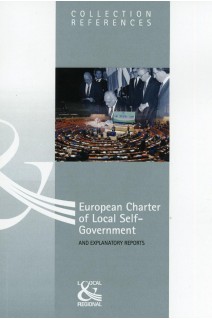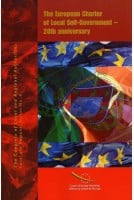The spectacular advance of local and regional democracy was the main innovation of the 20th century democracy. The recognition of local democracy by the Council of Europe member states led to the elaboration of the European Charter of Local Self-Government - the first international binding treaty that guarantees the rights of communities and their elected authorities. This text, which affirms the role of communities as the first level for the exercise of democracy, has become the benchmark international treaty in this area.The European Charter of Local Self-Government was drawn up within the Council of Europe on the basis of a draft proposed by the Standing Conference of Local and Regional Authorities of Europe (CLRAE), predecessor of the Congress of Local and Regional Authorities. It was opened for signature as a convention by the Council of Europe member states on 15 October 1985, and entered into force on 1 September 1988. As at 1 January 2010, the Charter has been ratified by 44 out of the 47 Council of Europe member states.The countries which have ratified the Charter are bound by its provisions. The Charter requires compliance with a minimum number of principles that form a European foundation of local democracy. The Congress of Local and Regional Authorities makes sure that these principles are observed.On 16 November 2009, an Additional Protocol was adopted to supplement the text of the European Charter of Local Self-Government. It relates to the right to participate in local authorities' affairs.
Introduction
European Charter of Local Self-Government
Preamble
Part I
Part II
Part III
Additional Protocol
to the Euroopean Charter of Local Self-Government on the right to participate in the affairs of a local authority
Explanatory report
on the European Charter of Local Self-Governement
Explanatory report
on the Additional Protocol to the Europen Charter of Local Self-Government on the right to participate in the affairs of a local community
Download an extract (1000)
978-92-871-6943-3 extracts












